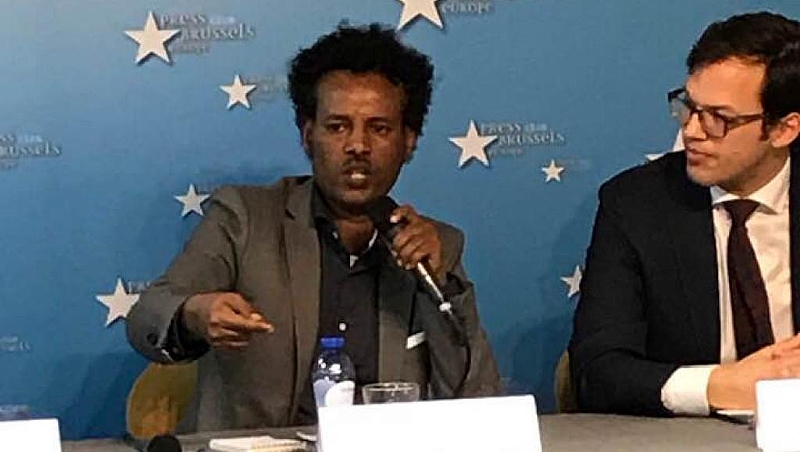
[ad_1]
The Human Rights Foundation for Eritreans, a Dutch organization of Eritreans in exile, is suing the EU for justice. The NGO says the EU is funding a project in which forced labor was used
The EUR 20 million project aims to finance a road in Eritrea as part of its program to minimize migration from Africa to Europe.
In a letter dated April 1 to the European Union Emergency Trust Fund for Africa, the attorney representing the Human Rights Foundation for Eritreans (FHRE ), the EU project is aware of the problem.
Eritrea has one of the highest rates of people fleeing the country because of its National Service Act. According to Human Rights Watch, about 12% of the population has taken the risk of migrating to Europe or neighboring countries.
The national service is officially set at 18 months, but despite the end of the war between Ethiopia and Eritrea in 2000, hostilities continued. This conscription period was therefore extended indefinitely.
A United Nations human rights investigation conducted in 2016 confirmed that conscripts were used as forced labor; the very work that will benefit the EU in carrying out its project.
Stem flow
The road rehabilitation program was launched in February of this year. The idea is to link the ports of Eritrea to its border with Ethiopia, now that the war between the two nations in conflict is officially over.
The project itself is part of a package of support measures to the Horn of Africa aimed at stemming the flow of migrants.
The EU Emergency Trust Fund is funding the project, even though it is clearly stated on its website: "Eritrea is a major source of asylum seekers … our main goal in the country is to create an enabling environment that enhances economic opportunities for young people "
Emiel Jurjens, the lawyer representing the FHRE, told RFI that human rights should be respected, especially since the UN confirmed last week that the current situation human rights in Eritrea still was not satisfactory.
Alliances against the EU
Jurjens said Monday that the first stage was launched, with a letter of summons to the EU.
The main problem is that the EU knowingly pursues this plan despite the fact that it can benefit directly or indirectly from forced labor.
"The European Union is, in many ways, bound by human rights standards, such as the Charter of Fundamental Rights, in which it makes it very clear that forced labor is prohibited in Article 5 to be precise. . In a word, this is the case, "explains the lawyer.
He added that the starting point of any project, especially one in which human rights issues have been problematic for years, should have been discussed or considered before embarking on concrete plans.
The EU said it would carefully monitor the work to ensure that people are "properly" paid and treated properly.
But Jurjens sees things differently. "In summary, the EU will resort to forced labor or finance forced labor for a project in the EU. . . The European Union is, in many ways, bound by human rights standards, such as the Charter of Fundamental Rights in which it makes it very clear that forced labor is strictly prohibited in Article 5 ".
[ad_2]
Source link